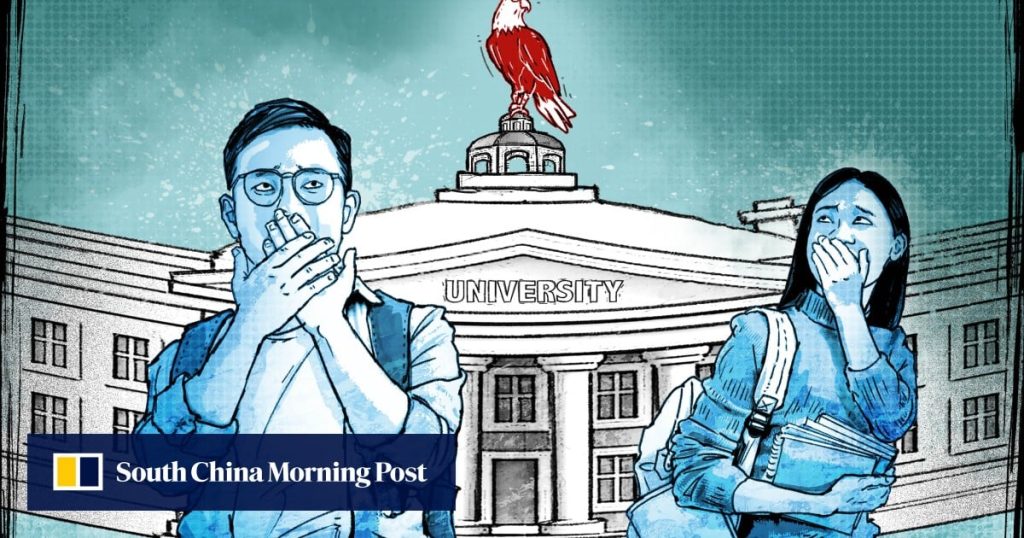Nearly 100 days in, Donald Trump’s second term as US president has been defined by his determination to upend the established order on nearly all fronts of domestic and foreign policy. In the sixth of this series, we look at the impact of the Trump administration’s stringent monitoring of individuals who came to the US to study and conduct research, and what it might mean for America’s competitiveness and intellectual culture.
Growing up in Shanghai, Ming dreamed of attending a top US university – not just because he wanted a world-class education, but because he wanted to be in a place where he could express his views more freely.
The second-year college student’s dream is quickly fading.
Instead of focusing his energy on studies and campus life, he is seeking legal advice, planning for a gap semester and making backup arrangements to go to Canada, for which he also holds a visa, in case US immigration enforcement comes knocking.
“The whole idea of separation of powers, the rule of law, freedom of speech, of assembly, I think that’s at the foundation of what makes this country attractive to many people who want to study subjects like politics like myself,” said Ming, who asked to use a pseudonym for fear of retaliation.
Before the start of the second Donald Trump administration, Ming was an active participant in campus protests in North Carolina.
These days, he avoids them – wearing a mask is no longer sufficient protection, he said – and even refrains from commenting on US politics in class for fear of a classmate reporting him to immigration authorities.


